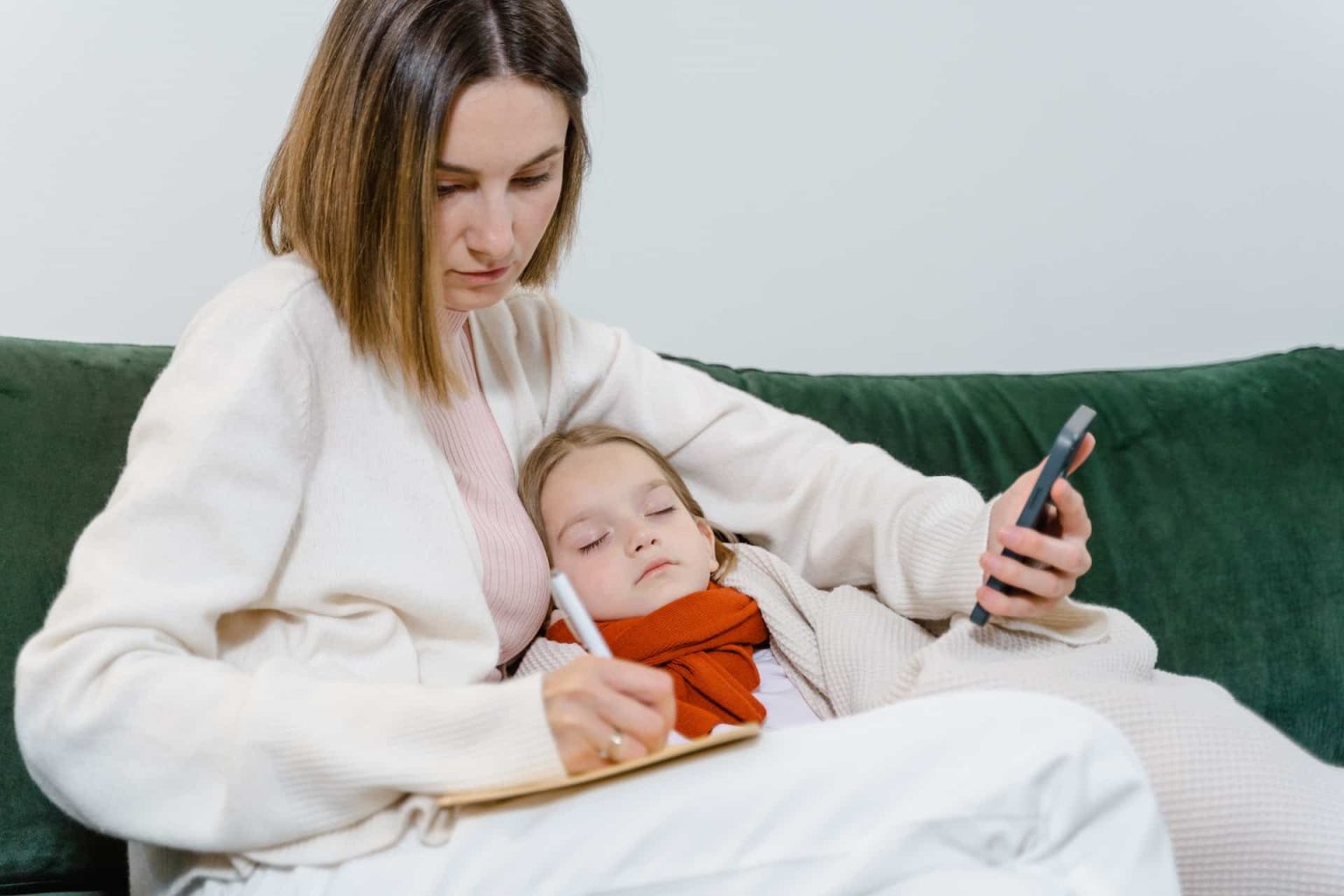First covid, now RSV. On top of the normal stressors that comes with parenting, parents are now facing a healthcare crisis and it’s causing us to feel burned out.
For the past two years and counting parents have been bombarded with health information. We’ve navigated covid restrictions and made vaccine decisions. Then just as it seemed we were almost out of the covid wilderness, enter cold and flu season. A rise in cases of Repiratory Syncytial Virus (RSV), high wait times in pediatric hospitals, and to add insult to injury, medications are in short supply.
Toronto-based Therapist Amy Deacon, Founder of Toronto Wellness Counselling says today’s healthcare demands is causing an increase in parental burnout.
Burnout is Different Than Stress.
Parental burnout is different than the normal stressors that come with daily parenting. “With daily stress, we tend to be somewhat hyperactive in accomplishing our tasks,” says Deacon. We hustle rush to get everyone out the door and run on a caffeine high to get through a day full of meetings. Life is busy, sometimes overwhelming, but there is a feeling that there is light at the end of the tunnel.
With burnout, we struggle to see the light. When we are burned out we are exhausted and disengaged. Extreme fatigue, difficulty focusing or concentrating, a reduced bandwidth and increased irritability are signs of burnout. “Burnout is also marked by a sense of helplessness and hopelessness which, if we’re not careful in treating, can lead to symptoms of depression,” says Deacon.
How to Cope with the Overwhelm.
Prioritize Rest. “The best way to alleviate burnout is to prioritize rest,” says Deacon. But when you’re a parent, getting that much needed rest can take some work. Speak with your partner or family members and ask if they can cover you so you can schedule some time to recover. “If you just want half a day for yourself to take a nap, do some baking or catch up on a book, reach out to see if you can schedule a playdate or lean into the possibility of getting support from other friends or family members,” says Deacon.
Get some fresh air every day. Even a 20 minute walk outside during the day when you can still get exposure to sunlight can help to recharge your batteries. A little bit of physical activity can also help to release those feel-good hormones that relieve stress.
Meditate. Meditation, even for 10 minutes in the morning before the kids wake up, can help calm your nervous system.
Journal. Spending a few moments a day to jot down your thoughts is a great way to release pent-up feelings you’ve been carrying.
Speak with Your Doctor. If you’ve tried some of the before mentioned strategies but aren’t seeing a shift in your mood, Deacon recommends reaching out to your GP or a mental health professional to support your recovery.










